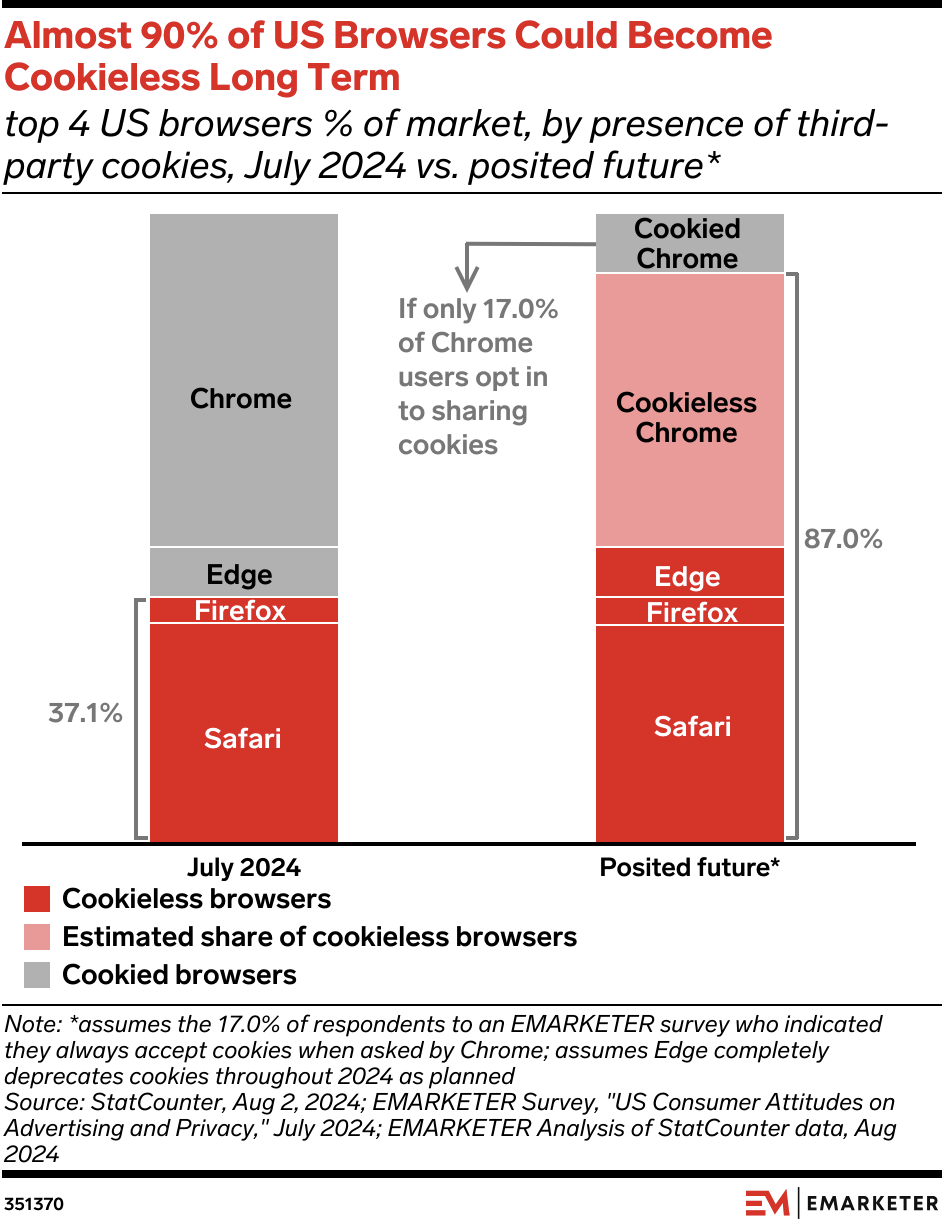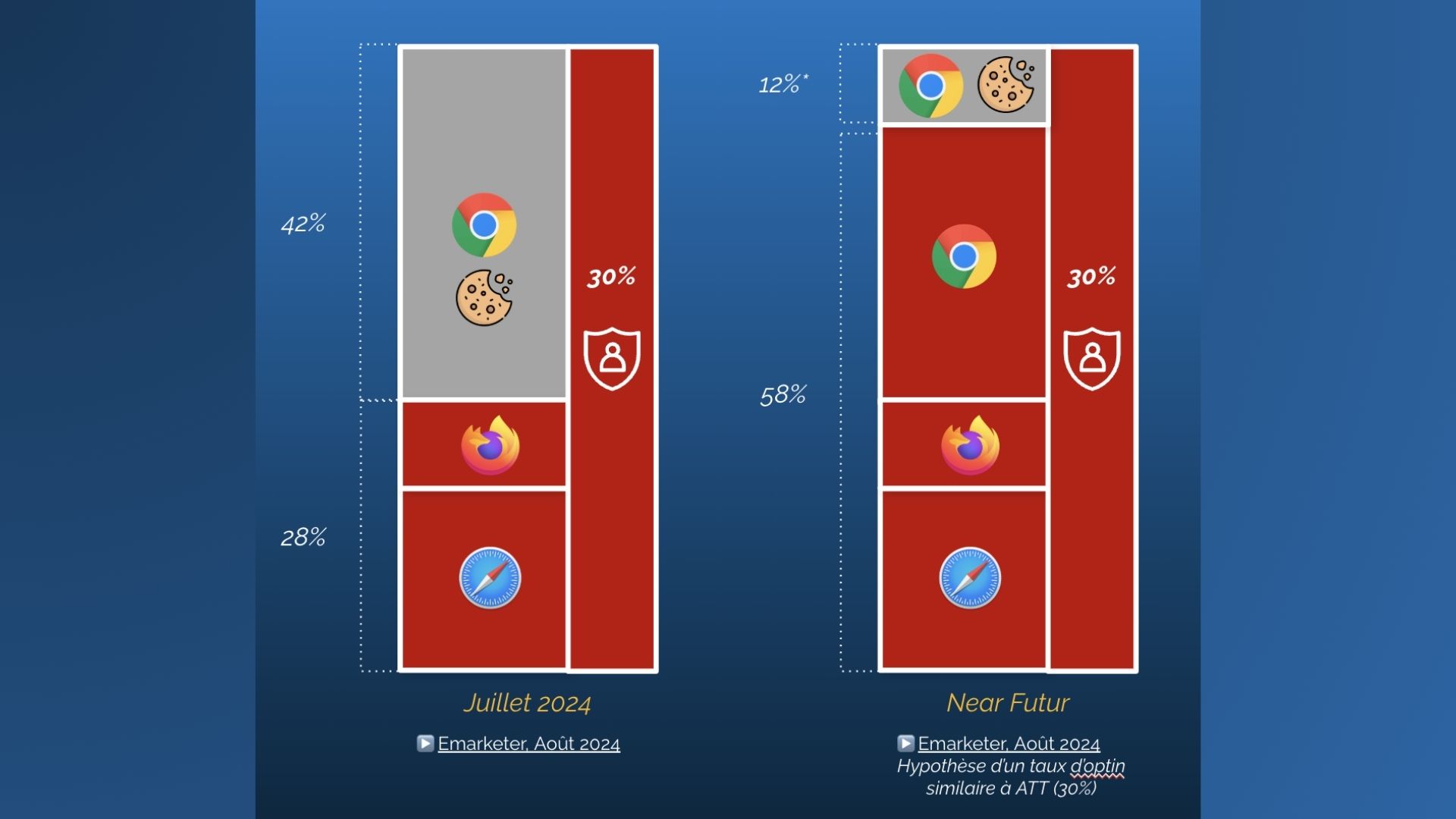Web Browsers Are Evolving: Third-Party Cookies, Once the Rule, Are Becoming the Exception
How is this transformation impacting the market in France and the United States?
Key Data and Future Outlook
In France: Toward an Almost Cookieless Future
According to the latest data, the distribution of web browsers in France shows a clear trend toward reduced reliance on third-party cookies:
- 30% of users refuse to give consent (= no third-party cookies)
- 28% of browsers block third-party cookies by default (Safari and Firefox)
- 42% remain (Google Chrome)
However, the outlook for ad tracking is growing darker:
- If Google’s Privacy Sandbox follows the same trajectory as Safari’s ATT, we could expect an additional 30 points to disappear.
- This would mean that only 12% of the population could be tracked by third-party cookies in the future.

In the United States: A Similar Transition
According to a StatCounter analysis shared by eMarketer, 87% of U.S. browsers could ultimately be cookieless. Consumer resistance is already evident:
- Fewer than 1 in 5 Americans (17%) still accept third-party cookies.
- With new regulations, Google’s consent-based model, and Microsoft Edge’s phase-out of cookies, only about 10% of browsers will remain traceable.

What Are the Implications for the advertising Strategies?
Evelyn Mitchell-Wolf, analyst at EMARKETER, sums it up:
Cookies will become the exception rather than the rule.
This shift forces advertisers and publishers to rethink their strategies by:
- Investing in cookieless strategies such as Google’s Privacy Sandbox
- Using tools like data clean rooms
- Exploring identity solutions and first-party data such as First-id
As Scott Brinker puts it:
The future is first-party data that is privacy-compliant—and the future is already 37% of the way there.
That path is now opening for players across the global market.

